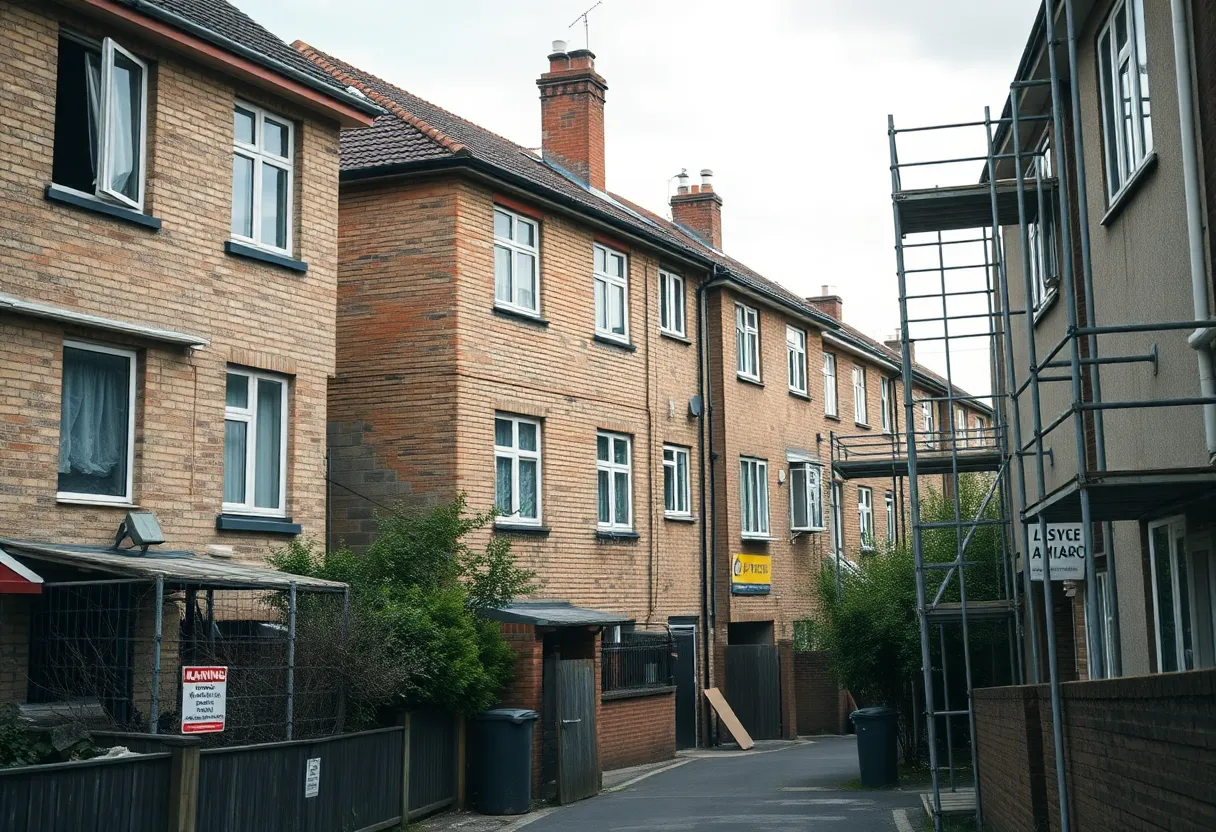News Summary
A recent investigation by One Housing uncovered over 800 inaccuracies in asbestos risk records, raising alarms among tenants. Initiated due to a complaint about slow responses to ceiling issues, the probe revealed systemic issues in asbestos management. Many properties were falsely classified regarding asbestos presence, necessitating urgent changes in data management practices. Following the findings, Riverside has commenced implementing new systems to improve accuracy and protect tenant health, as the dangers of asbestos exposure remain a significant public health concern.
Over 800 Asbestos Risk Records Found Inaccurate in Recent Investigation
In a startling revelation, a review by the social landlord One Housing has unveiled a shocking number of over 800 entries of incorrect asbestos risk data, sparking concern among tenants and community members. This extensive investigation was launched following a complaint to the Ombudsman, shedding light on significant lapses in asbestos management practices.
Systemic Failures Exposed
The Ombudsman’s probe into One Housing was initiated after a resident complained about a delayed response regarding a collapsed ceiling and a leak, which took an astonishing 14 months to address. During this examination, it was found that records pertaining to the presence of asbestos in the tenant’s home were outdated and alarmingly inaccurate. In many cases, properties were incorrectly classified as having ‘no risk’ when, in fact, asbestos could be present.
Data from the investigation highlights that older entries remained on the register despite updates and that new information was often included without revising existing records. This resulted in properties being flagged erroneously as ‘high risk,’ raising questions about the reliability of One Housing’s safety protocols and overall management of asbestos data.
Contributing Factors to the Data Mismanagement
One Housing has attributed these discrepancies to a combination of factors, including a transition process where external services were brought in-house. The lack of comprehensive knowledge and information management practices resulted in chaos within the records system. As the company merged with Riverside in April 2023, it admitted to needing substantial improvements in its approach to managing asbestos records.
In response to the Ombudsman’s findings, Riverside has implemented an array of new systems for asbestos management. This includes producing an operational guidance document and recruiting new administrative positions specifically tasked with maintaining accurate asbestos databases. These changes aim to rectify oversight issues and ensure better protection for tenants moving forward.
The Dangers of Asbestos Exposure
Historically, asbestos was widely used in the construction of buildings, boilers, pipes, roofing, and flooring tiles, particularly in properties built prior to the late 1980s. It is believed that almost 1.5 million homes in the UK may still contain this *dangerous material*. While the risk of intact asbestos poses low dangers, the potential hazards arise when it is disturbed or damaged, which can release harmful fibers, leading to severe health implications.
Short-term exposure to asbestos, as evidenced in unique cases like the aftermath of the 9/11 attacks, can significantly heighten cancer risks. Mesothelioma, a deadly cancer strongly linked to asbestos exposure, may take decades to develop, with symptoms appearing 20 to 60 years post-exposure.
Wider Implications for Public Health
The uncovering of these data discrepancies underscores a broader concern regarding the management of asbestos-related health risks in residential environments. Many inherited properties remain vulnerable due to inadequate assessments and failures to inform residents about potential exposure risks. The health impacts extend beyond direct exposure; family members of those who work in construction are also susceptible to secondhand exposure.
Moreover, the issue of asbestos isn’t limited to housing. Asbestos cement pipes, used in infrastructure, could also pose risks when they deteriorate, potentially leading to water contamination and posing further health concerns.
Call for Action
As awareness of asbestos risks increases, there is an urgent need for comprehensive strategies to enhance the accuracy of record-keeping and health oversight. Regular audits and an updated approach to data management are indispensable to ensure tenant safety and to mitigate the risk of exposure to this deadly material.
The community’s hope remains that through rigorous oversight and continuous improvement in asbestos management practices, residents will feel safe in their homes and protected from potential health hazards.
Deeper Dive: News & Info About This Topic
HERE Resources
Asbestos Crisis Uncovered: One Housing’s Shocking Record-Keeping Failures
Serious Asbestos Errors by Social Housing Provider Raise Alarm
The Asbestos Crisis in UK Housing: Urgent Calls for Action
Housing Association Uncovers Over 800 Asbestos Risk Errors
The Dark Legacy of Asbestos: Unraveling the Crisis
Ombudsman Review Reveals Asbestos Mismanagement in Housing Association



















